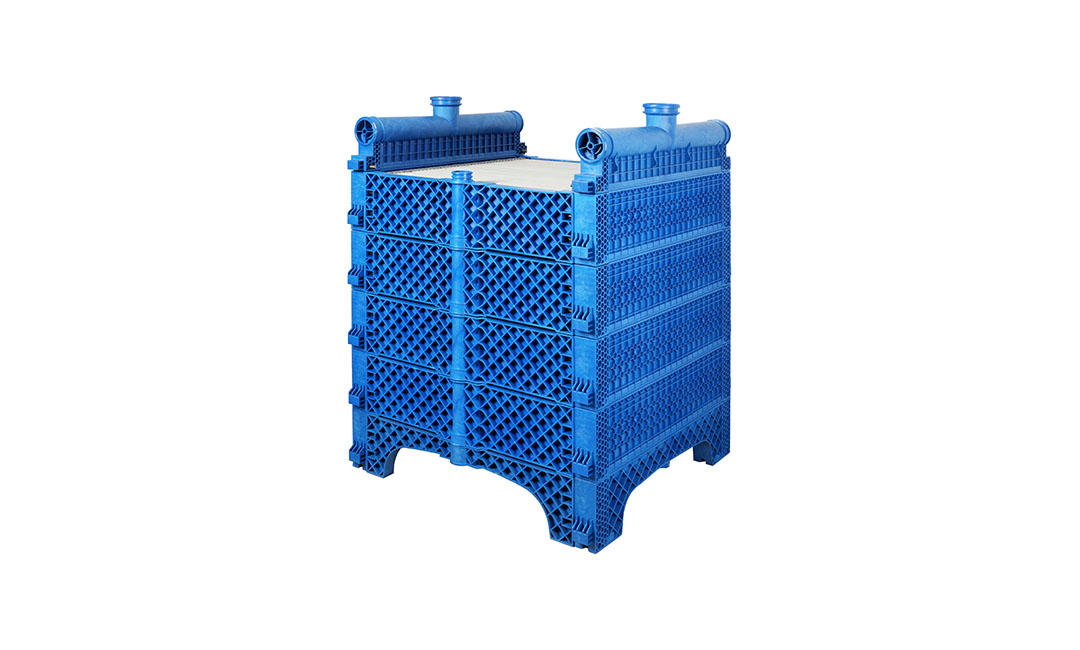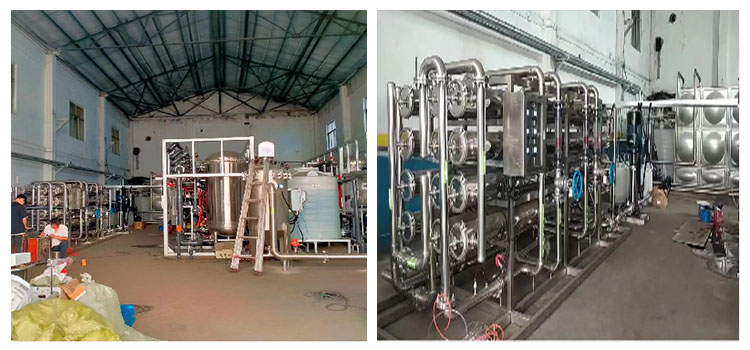Improved Water Quality
Water is essential for life, and ensuring its quality is crucial for the health and well-being of individuals and communities. With the increasing concerns over water pollution and scarcity, the need for effective water filtration systems has become more pressing than ever. Tubular ceramic membranes have emerged as a promising technology for water filtration, offering numerous benefits that contribute to improved water quality.
One of the key advantages of tubular ceramic membranes is their high durability and resistance to harsh chemicals and extreme temperatures. Unlike traditional polymeric membranes, which are prone to degradation and fouling, ceramic membranes can withstand aggressive cleaning procedures and maintain their performance over a longer period. This durability not only reduces maintenance costs but also ensures consistent and reliable water filtration.

In addition to their durability, tubular ceramic membranes offer superior filtration efficiency compared to other membrane materials. The unique structure of ceramic membranes allows for precise control over pore size, resulting in a more efficient removal of contaminants such as bacteria, viruses, and suspended solids. This high filtration efficiency ensures that the treated water meets stringent quality standards, making it safe for consumption and other uses.
Furthermore, tubular ceramic membranes have a longer lifespan than other membrane materials, making them a cost-effective solution for water filtration. While the initial investment in ceramic membranes may be higher, their extended lifespan and lower maintenance requirements result in significant cost savings over time. This makes ceramic membranes a sustainable and economically viable option for water treatment plants and other applications that require reliable filtration systems.
Another benefit of tubular ceramic membranes is their versatility and adaptability to different water sources and treatment processes. Ceramic membranes can be customized to meet specific filtration requirements, allowing for the removal of a wide range of contaminants and impurities. Whether treating surface water, groundwater, or wastewater, ceramic membranes can be tailored to achieve the desired water quality standards, making them suitable for various applications in industries such as food and beverage, pharmaceuticals, and municipal water treatment.
Moreover, tubular ceramic membranes are environmentally friendly and contribute to sustainable water management practices. The production of ceramic membranes involves fewer chemicals and energy compared to other membrane materials, reducing the environmental impact of water treatment processes. Additionally, the long lifespan of ceramic membranes reduces the need for frequent replacements, further minimizing waste generation and resource consumption.
In conclusion, tubular ceramic membranes offer numerous benefits that contribute to improved water quality and sustainable water management practices. Their high durability, filtration efficiency, cost-effectiveness, versatility, and environmental friendliness make them a preferred choice for water filtration applications. By investing in tubular ceramic membranes, water treatment plants and other industries can ensure the provision of clean and safe water for consumption and other uses, contributing to the health and well-being of individuals and communities.
Increased Efficiency
Water filtration is a crucial process in ensuring access to clean and safe drinking water. With the increasing concerns over water quality and scarcity, the demand for efficient and reliable water filtration technologies has never been higher. One such technology that has gained popularity in recent years is tubular ceramic membranes.
Tubular ceramic membranes are a type of filtration technology that offers several advantages over traditional filtration methods. One of the key benefits of tubular ceramic membranes is their increased efficiency in removing contaminants from water. These membranes are made from inorganic materials such as alumina, zirconia, or titania, which have high chemical and thermal stability. This allows them to effectively filter out a wide range of contaminants, including bacteria, viruses, and heavy metals, with high efficiency.
In addition to their high filtration efficiency, tubular ceramic membranes also have a longer lifespan compared to other types of membranes. The durable nature of ceramic materials makes them resistant to fouling and chemical degradation, resulting in lower maintenance costs and longer operational life. This not only reduces the overall cost of water treatment but also ensures consistent and reliable performance over time.
Furthermore, tubular ceramic membranes are capable of operating at higher temperatures and pressures, making them suitable for a wide range of water treatment applications. Whether it is treating industrial wastewater, desalination, or producing ultrapure water for pharmaceutical or electronic industries, tubular ceramic membranes can deliver high-quality water with minimal energy consumption.

Another advantage of tubular ceramic membranes is their compact design, which allows for a smaller footprint compared to other filtration systems. This is particularly beneficial for applications where space is limited or where mobility is required, such as in emergency response situations or remote locations. The compact size of tubular ceramic membranes also makes them easier to install and integrate into existing water treatment systems.
Moreover, tubular ceramic membranes are environmentally friendly and sustainable. Unlike traditional filtration methods that rely on chemicals or disposable filters, ceramic membranes can be easily cleaned and reused multiple times, reducing waste generation and environmental impact. This not only helps in conserving resources but also contributes to a more sustainable water treatment process.
In conclusion, tubular ceramic membranes offer a range of benefits that make them an attractive choice for water filtration applications. From their high filtration efficiency and long lifespan to their compact design and sustainability, these membranes provide a reliable and cost-effective solution for ensuring access to clean and safe drinking water. As the demand for clean water continues to grow, tubular ceramic membranes are poised to play a crucial role in meeting the water treatment needs of communities around the world.
Cost Savings
Water filtration is a crucial process in ensuring the safety and quality of drinking water. With the increasing concerns over water pollution and scarcity, the demand for efficient and cost-effective water filtration technologies has been on the rise. Tubular ceramic membranes have emerged as a promising solution for water filtration due to their numerous benefits, including cost savings.
One of the key advantages of tubular ceramic membranes is their long lifespan. Unlike traditional polymeric membranes that need frequent replacement, tubular ceramic membranes can last for several years with proper maintenance. This longevity not only reduces the frequency of membrane replacement but also minimizes downtime and operational costs associated with maintenance and replacement.
In addition to their durability, tubular ceramic membranes offer superior filtration performance compared to other membrane materials. The unique structure of ceramic membranes allows for precise control over pore size, resulting in efficient removal of contaminants such as bacteria, viruses, and suspended solids. This high filtration efficiency translates to improved water quality and reduced chemical usage for water treatment, leading to cost savings in the long run.
Furthermore, tubular ceramic membranes are highly resistant to fouling, a common issue that can decrease the efficiency of water filtration systems. The smooth surface of ceramic membranes inhibits the buildup of contaminants and biofilm, reducing the need for frequent cleaning and chemical treatments. This resistance to fouling not only extends the lifespan of the membranes but also reduces operating costs associated with maintenance and cleaning.
Another cost-saving benefit of tubular ceramic membranes is their energy efficiency. Ceramic membranes require lower operating pressures compared to polymeric membranes, resulting in reduced energy consumption and lower operating costs. This energy efficiency not only lowers the overall operational expenses of water filtration systems but also contributes to environmental sustainability by reducing carbon emissions.
Moreover, tubular ceramic membranes are compatible with a wide range of water sources, including seawater, brackish water, and wastewater. Their versatility makes them suitable for various applications, from municipal water treatment to industrial processes. By providing reliable and efficient filtration across different water sources, ceramic membranes help to optimize water treatment processes and reduce overall costs associated with water purification.
In conclusion, tubular ceramic membranes offer a multitude of benefits for water filtration, including cost savings. Their long lifespan, superior filtration performance, resistance to fouling, energy efficiency, and versatility make them a cost-effective solution for ensuring clean and safe drinking water. By investing in tubular ceramic membranes, water treatment facilities can not only improve the quality of their water but also reduce operational expenses and contribute to sustainable water management practices.

